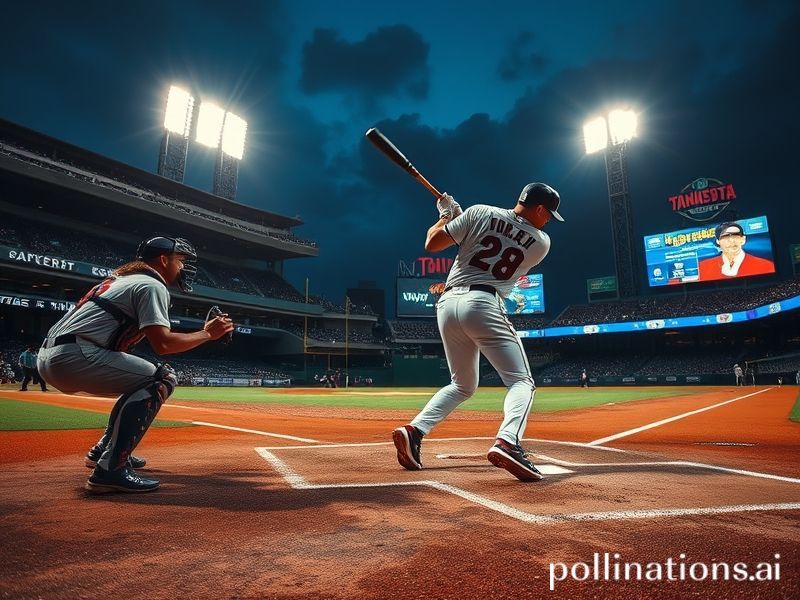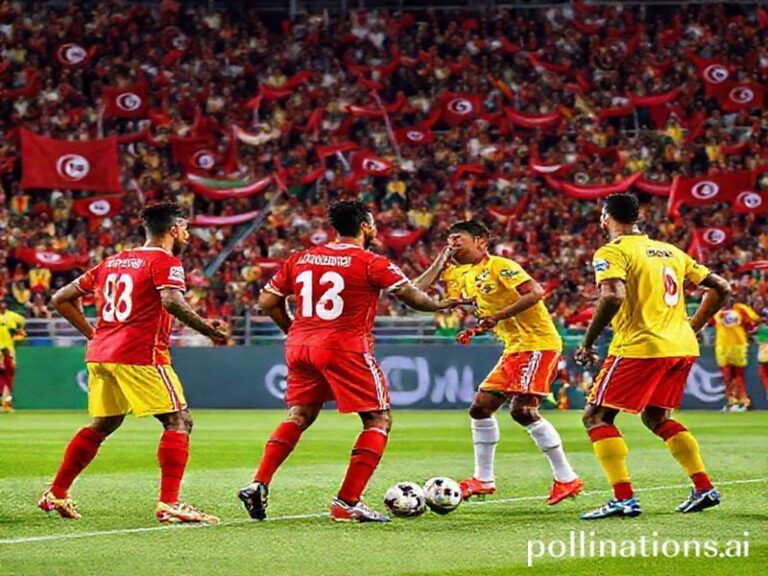Twins vs Rangers: How a Meaningless Baseball Game Explains Everything Wrong (and Right) with Planet Earth
Twins vs Rangers: The Global Battle for the Soul of Baseball and, Incidentally, the Free World
By Our Man in the Press Box, Nursing a Warm Beer and Existential Fatigue
MINNEAPOLIS—Somewhere above the Mississippi flyway, migratory birds heading north for spring looked down and mistook Target Field for a misplaced casino parking lot. The Twins were hosting the Rangers, and the cosmic joke was on all of us: two teams named after law-enforcement-adjacent professions, locked in a struggle that somehow still matters to people who have student-loan balances larger than the combined GDP of three island nations.
On paper it was merely another early-season Major League Baseball tilt, a 3-2 Twins victory decided when Carlos Correa lofted a lazy fly ball that eluded three Rangers outfielders who had apparently filed their GPS coordinates under “optional.” Yet from an international vantage point—say, a bar in Lagos where patrons wager naira on exit velocity, or a Tokyo izakaya where the seventh-inning stretch is observed with sake bombs—the game looked less like sport and more like geopolitical kabuki.
Consider the jerseys: the Twins in “North Star Navy,” a shade named by a marketing intern who’s definitely read too much Nordic noir; the Rangers in their red-white-and-blue, a color combo that still convinces certain governments they can weaponize democracy. Both uniforms are manufactured in the same Vietnamese sweatshop, a fact that unites them in polyester solidarity even as their fans snipe on Twitter about payroll efficiency. If you listen closely you can almost hear the factory’s fluorescent lights humming the melody of late-stage capitalism.
The global supply chain is everywhere on the diamond. The bats—maple from Québec, ash from Pennsylvania—arrive via Panama-flagged freighters whose crews haven’t seen land since Valentine’s Day. The balls themselves are stitched in a Costa Rican town where children grow up believing “World Series” means the planet actually gets invited. And the pitch-tracking cameras? Designed in Israel, assembled in Shenzhen, monitored by an outsourced data team in Bengaluru whose Slack channel includes the emoji for existential dread.
Which brings us to the existential dread. In Kyiv, the game was background noise in a bomb shelter where a displaced Mets fan explained to bewildered civilians that “it’s basically cricket for people who need faster gratification.” In Caracas, the state broadcaster cut away from rolling blackouts to show Marcus Semien’s strikeout, proof—according to the chyron—of capitalist impotence. Meanwhile, in London’s financial district, hedge-fund quants ran Monte Carlo simulations on Byron Buxton’s hamstring because, apparently, the pound sterling now rises and falls on soft-tissue injuries.
The Twins faithful, ever the stoic Lutherans of fandom, celebrated the win with the muted glee of people who consider enthusiasm a tax-deductible emotion. Rangers fans, scattered across a state that still thinks the 19th century was a suggestion, consoled themselves with brisket and the reliable amnesia of next year. Both groups, it should be noted, streamed the game on platforms that harvest their data like cotton, proving that surveillance and sacrifice flies can coexist in America’s pastime.
And what does it all mean? In a world where drone strikes interrupt Little League tournaments and climate change threatens to turn every ballpark into waterfront property, the Twins vs Rangers is less a contest of skill than a ritual reminder that we still agree on something—namely, that three hours of meaningless action is preferable to three hours of meaningful reality. The final score will be forgotten by the time OPEC adjusts oil prices, but for a brief, shining moment, the planet paused to watch grown men adjust their gloves and spit sunflower seeds like anxious diplomats.
So here’s to the Twins, who will inevitably collapse in September; and to the Rangers, who will discover new, innovative ways to disappoint. Somewhere, a refugee kid in Athens is learning English by listening to the broadcast, unaware that the phrase “designated hitter” is not, in fact, about NATO policy. The game ended, the lights dimmed, and the zamboni—wrong sport, same metaphor—of history rolled on. Play ball, comrades. The world is watching, and the beer is still warm.







